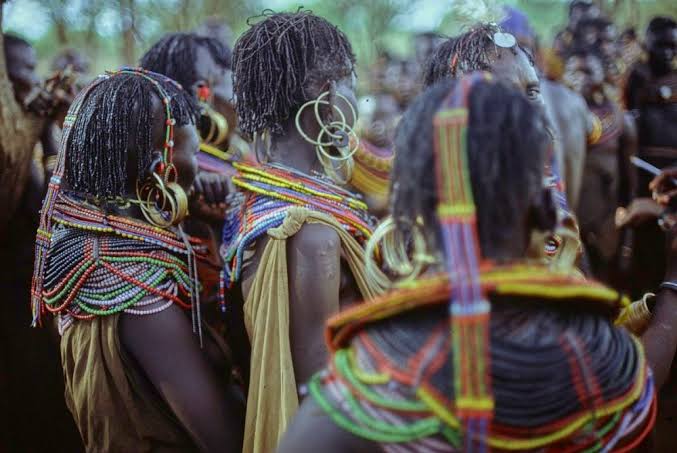NAIROBI, Kenya, Feb 9-On February 6, the world marked the day to create awareness on the effects of Female Genital Mutilation (FGM) on women and girls, especially in middle income and poor countries.
But despite the efforts by governments criminalizing and creating legislation with punitive consequences, many young girls still undergo the cut, and forced into marriage, a practice that continues to alter their lives and limit their dreams.
And so many more champions have come out to speak for the voiceless young girls, held hostage by a retrogressive tradition.
This is the story of one such woman from West Pokot, who spends most of her time, fighting for the young girls from her community.
In a village on the edge of the map in West Pokot, the vice has been practiced for decades.
But as the women here, young and old hone their traditional skills in food preparation, many other cultural practices thrive on, unspoken and undisturbed by time and modernity.
Teresia Cheptoo remembers her childhood days and the celebrations that brought many girls together.
“My favorite month growing up was December. There various celebrations, Christmas, and other like FGM celebrations. In the villages, we used to follow up girls, celebrate with them as they got circumcised, it just used to be part of the events that were going on, in December. But I went to school, and my future was full of uncertainties because there were so many issues affecting girls. I used to see girls go up to class six and drop out,” she says.
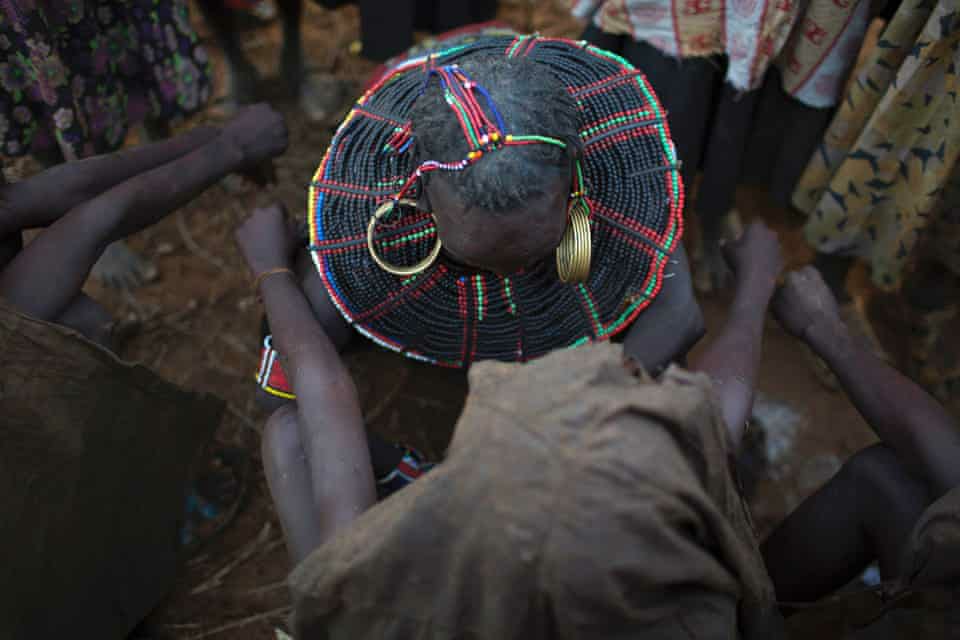
For this community, female circumcision is a crucial rite of passage from childhood into womanhood.
A practice that to the outside world, is still considered brutal…for these young ones, the blood seen dripping from the blades is considered a sign of pride.
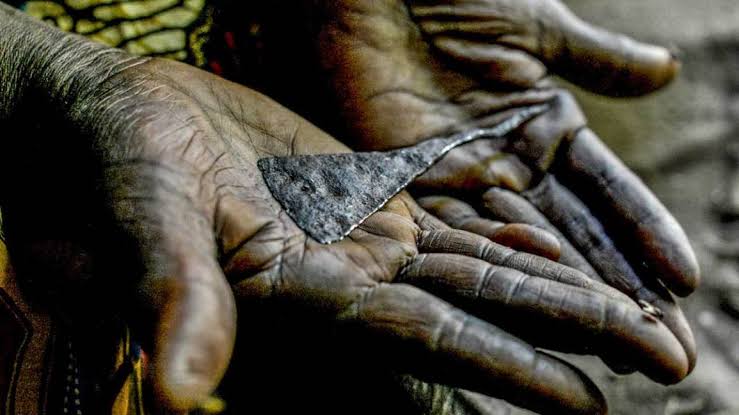
They have boldly endured the pain and are ready to step into the next stage of life.
The songs from the older women who too have been on the same path nudge them on.
Gently, the elder lady with the blade, puts their legs together, to shield them from the flies, attracted to the blood oozing from the wound between their legs.
The skins over their heads cover them from the public.
They will remain hidden from the community for a month but with suitors waiting in the wings.
These girls often don’t hear from their families or community about the grim consequences of genital cutting.
These are incalculable, in the worst-case scenario ranging from severe internal bleeding, pain during intercourse, to cysts, complicated infections and infertility.
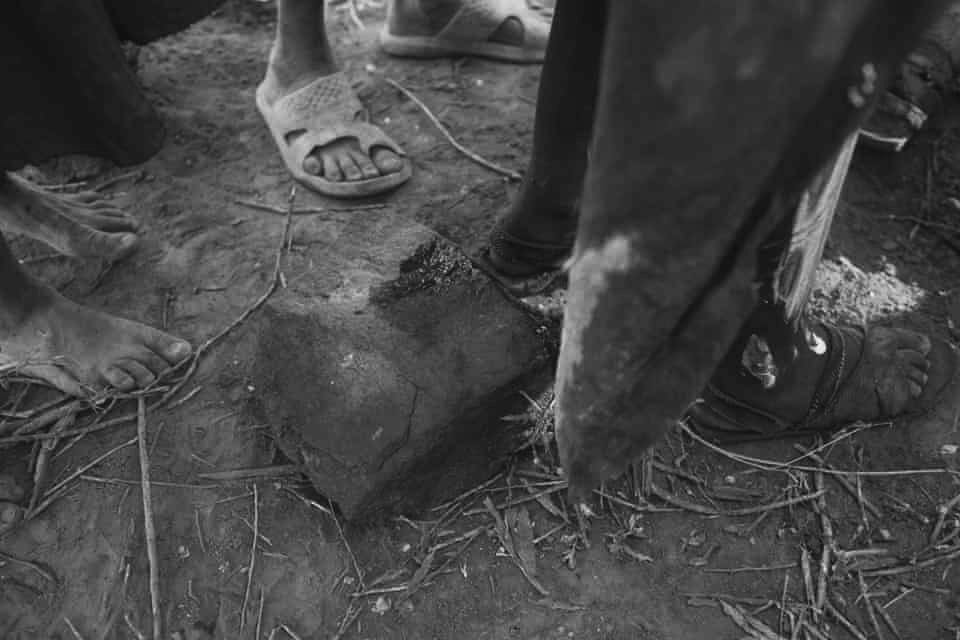
Sometimes circumcision can lead to childbirth complications and an increased risk of stillbirths.
For Cheptoo school was her way out.
She did not have to endure the grueling practice. And now she hopes to pass on some of that wisdom about the dangers of the cut, and the importance of school to the younger generations of girls who have been targeted for the same and forced into early marriage.
She admits that it is not an easy task since her community is still steeped in tradition.
Cheptoo says it took a lot to change her parents’ attitude and for her to given a chance to become a young adult without the pressures of the cut.
“From the teachings I received from world vision, including mentorship programs, ARP, and teachings that were targeting parents, I was able to escape FGM, because then my parents were aware of the effects of FGM and they supported me throughout,” she says.
In this County, she says, women say the challenges of the past still haunt them.
One of such women, Mary Cherotich says, “being a girl here is such an onerous task. There are so many challenges one girl has to surmount.”
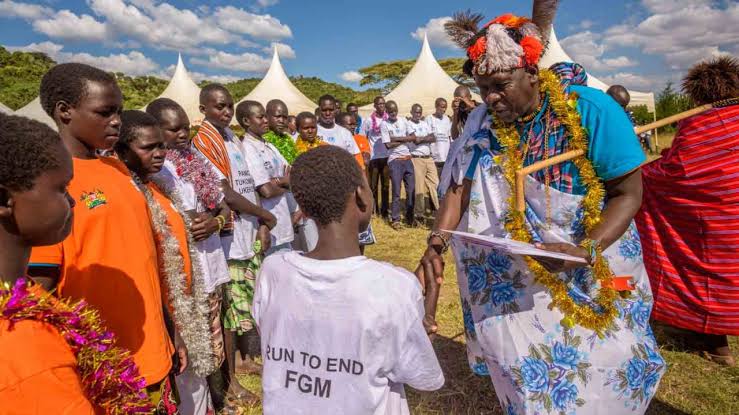
Through mentorship, young girls are however picking up crucial skills that help them stay in school.
Faith Bhoyoo a student says, that, “I have learnt how to take care of myself, like I will know how to protect myself against early pregnancies and I have acquired life skills on how to manage my emotions, and relate with others.”
A lesson that fellow student Mildred Chelimo also says has given her better life skills, ” the mentorship program has helped me to escape, dangerous and outdated cultural practices like FGM. When I was in the program, I stayed there for almost 6 months, it helped me not to be involved in early marriages, and also FGM.”
Through partnerships with international organizations like the World vision, Cheptoo’s Her lab foundation seeks to enable girls from this community, make a life for themselves and use their skills to improve the community around them.
World Vision country director Lillian Dodzo says, “We engage with children’s clubs in schools. We approach schools and create these clubs, where children are sensitized on their rights, so that they learn on the things they should not accept.”
“We go beyond that to also create what we call alternative rites of passage, so that even those girls that don’t go through cultural circumcision. They are also trained in other skills that can prepare them for womanhood and growth. “
But culture still runs deep in this community.
“Most Pokot men cannot marry a woman who has not undergone the cut. And the sad thing is that most of the girls who undergo it never return to school,” Cherotich a resident of West Pokot said.
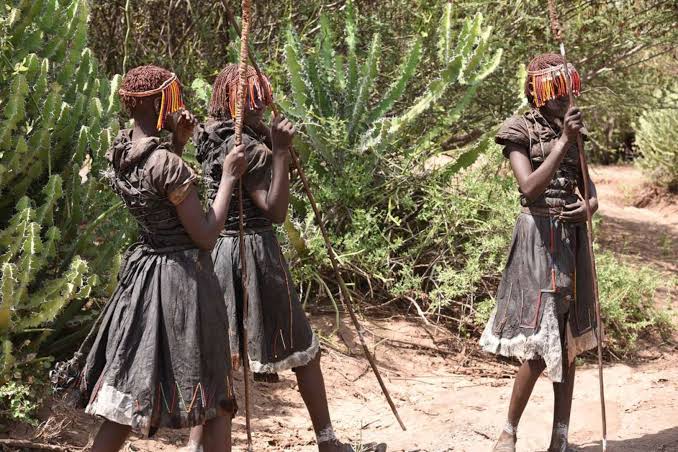
But this doesn’t deter those seeking to help the community to do more to help the girl child.
“We equip them with tools they need to know that if they, are in a situation where they are treated inappropriately, or there are plans they know where to go to so that they can report, and protect themselves. they also know about the child helpline 116 ” says Lillian Dodzo.
At the st. Elizabeth school in Morpus within the County, the teachers have taken on the extra responsibility of equipping the girls with much needed lifeskills.
The school head teacher, Carolyne Menach says that, “These girls were brave enough to say no to FGM, that they sought refuge in the Morpus school. We have many girls in the community, who have nowhere to go to and they do not know about rescue centres.”
Such institutions are a lifeline for young girls who have escaped the cut and from being cruelly jolted into early parenthood.
To help the girls achieve higher education, the school partners with local and international organizations to enable a smooth transition from basic education.
At the centres like this one, they learn skills like bead work, where they make beautiful jewelry for sale to both locals and visitors.
It’s a centuries old craft passed on from generations.
Here, they also learn IT skills that also enable them access higher education from their homes.
They are also taught modern farming skills that they will depend on to earn a living once they leave school.
Teresa, spends most mornings with the girls before they begin their individual classes, encouraging them to share their fears and hopes….
Many here say, that they sometimes feel the pressure of the stigma, for abandoning tradition.
Cheptoo hopes to still be the instrument of change, for a community that desperately needs it.
Want to send us a story? Contact Shahidi News Tel: +254115512797 (Mobile & WhatsApp)


